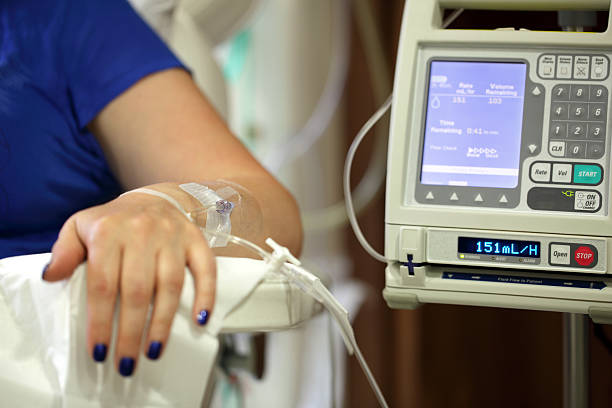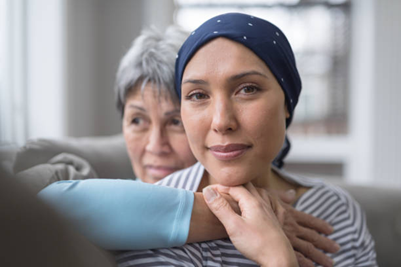Cancer, an affliction that changes lives overnight, impacts not just patients but their loved ones too. Globally, around 18.1 million new cancer cases were reported in 2020, with over 1.3 million in India alone. According to estimates, roughly 50–60% of cancer patients globally may receive chemotherapy at some point during their treatment journey.
For many, the word “chemotherapy” evokes fear—not just of battling cancer but also of the physical transformations that often accompany the treatment, particularly hair loss. Dr. Sandeep Nayak, a seasoned surgical oncologist and pioneer of minimal-access cancer treatment in Bangalore, says:
“Whenever I recommend chemotherapy, patients often express concerns about losing their hair. However, not all chemotherapies lead to hair loss. Side effects differ significantly among individuals, and hair loss, if it occurs, is usually temporary. Also, each regimen is tailored to the patient’s needs, minimizing unnecessary side effects,”
Chemotherapy remains a cornerstone of cancer treatment, yet not all chemotherapies cause hair loss. Understanding this fact is critical to helping patients navigate their journey with confidence.
But what exactly is chemotherapy? Let’s decode the science behind this powerful treatment.
Understanding Chemotherapy

Chemotherapy involves using drugs to destroy cancer cells. These drugs circulate in the bloodstream and target rapidly dividing cells. Unfortunately, this mechanism doesn’t discriminate between cancerous and healthy cells, often impacting hair follicles, the cells lining the gut, and bone marrow.
While chemotherapy is highly effective in slowing the spread of cancer or even eradicating it, the treatment approach varies. Factors like the type of cancer, stage, and patient’s overall health determine the chemotherapy regimen. Importantly, not all drugs used in chemotherapy cause hair loss. Some treatments target specific cancer cells without affecting the hair follicles.
A common concern among patients is: “Do you lose all your hair with chemo?”
Dr. Suresh Babu, a renowned medical oncologist in Bangalore, explains,
“Understanding the purpose and mechanism of chemotherapy can alleviate some fears. Chemotherapy involves a variety of drugs and only a few lead to hair loss. Some may cause complete hair loss, others only mild thinning, and some have no effect at all. What’s crucial to understand is that hair loss, if it happens, is temporary.”
Concerned about chemotherapy side effects? Consult a cancer specialist to understand your options. Early information and planning can make the journey smoother and more manageable.
Chemotherapy and Hair Loss: The Connection
Hair loss while undergoing chemotherapy, known as chemotherapy-induced alopecia (CIA), occurs because many chemo drugs attack fast-dividing cells like those in hair follicles. However, the extent of hair loss varies:
Drugs that commonly cause hair loss include Doxorubicin, Paclitaxel, and Cyclophosphamide.
Other agents like Cisplatin or Vincristine are less likely to result in significant hair loss.
“Patients frequently ask if hair loss is inevitable. The answer is no. Advances in targeted therapy and immunotherapy have significantly reduced this side effect in many cases,” shares Dr. Nayak, a trusted cancer specialist in Bangalore.
Coping with Hair Loss During Chemotherapy

Losing hair during treatment can be an emotional challenge, but proactive measures can ease the process:
Cold Cap Therapy: Cooling the scalp during the sessions constricts blood vessels, reducing drug exposure to hair follicles.
Scarves and Wigs: Many patients find comfort in scarves, wigs, or hats, which can also help protect the scalp from sunburn or cold.
Gentle Hair Care: Use mild shampoos and strictly avoid harsh treatments like coloring or heat styling to minimize further damage.
Support Networks: Sharing experiences with support groups or counselors can help alleviate emotional distress.
“The MACS team encourages patients to embrace their journey and focus on recovery. Self-compassion and a supportive community make a world of difference,” Dr. Nayak, a cancer treatment specialist in Bangalore, advises.
Struggling with hair loss during chemotherapy? Reach out to a cancer expert for guidance on managing side effects and improving your quality of life.
Hair Regrowth After Chemotherapy

Regrowth Timeline: Most patients notice fine hair emerging within weeks. By 12 months, hair often returns to its pre-treatment state.
Promoting Regrowth: Nutrient-rich diets, gentle scalp massages, and hair care products designed for sensitive scalps can aid recovery.
Medical Interventions: Topical treatments prescribed by your doctor may accelerate hair regrowth.
“Patience is key. Hair regrowth is a gradual process, and the beauty of post-chemotherapy hair regrowth is the transformation. Many patients experience a change in hair texture, often referred to as ‘chemotherapy curls.’ It’s temporary and a reminder of their strength and recovery journey,” notes MACS Clinic founder, Dr. Nayak.
Conclusion
Hair loss during chemotherapy is a challenging yet often temporary side effect. While some people view hair loss as a small price to pay in the fight for life, it is a deeply personal experience that can significantly impact one’s self-esteem and emotional health.
By understanding the connection between chemotherapy and hair loss, patients can prepare themselves mentally and physically for the journey. Advances in cancer care, such as targeted therapies and supportive measures, mean that hair loss isn’t always inevitable.
Every patient’s experience is unique, and addressing concerns openly with a cancer specialist can facilitate a smoother recovery.
Frequently Asked Questions
Does all chemo make you lose hair?
Can cold cap therapy prevent hair loss completely?
Why does hair grow back differently after chemotherapy?
Can I dye my hair during chemotherapy?
When will my hair stop falling out after chemo?
Are there chemo drugs that don’t affect hair?
What percentage of chemotherapy patients lose hair?
Can supplements help with hair regrowth after chemo?
Is there a way to predict if I’ll lose hair from chemo?
Can emotional stress worsen hair loss during chemo?
Reference Links
Disclaimer: The information shared in this content is for educational purposes only and not for promotional use.

